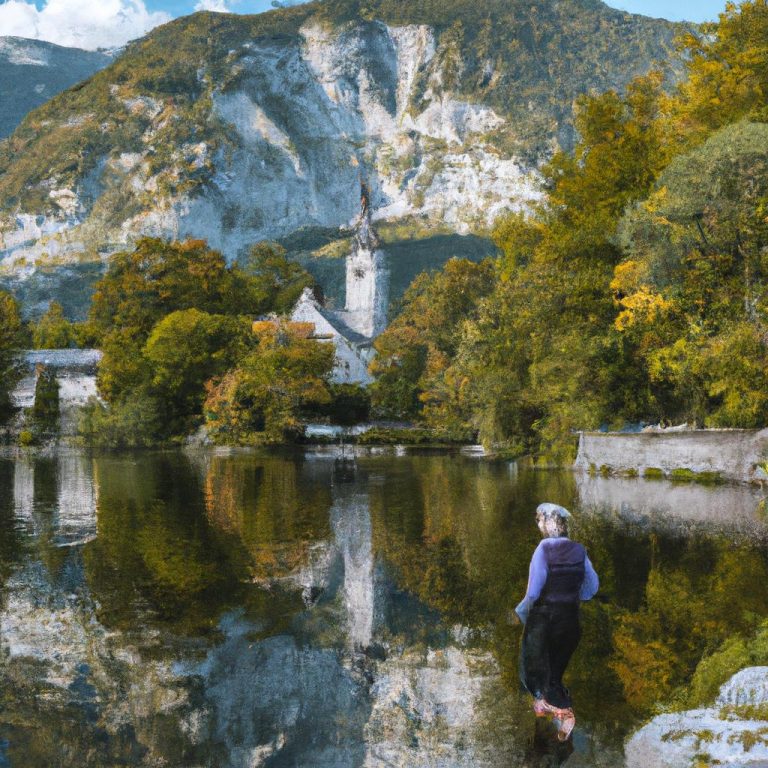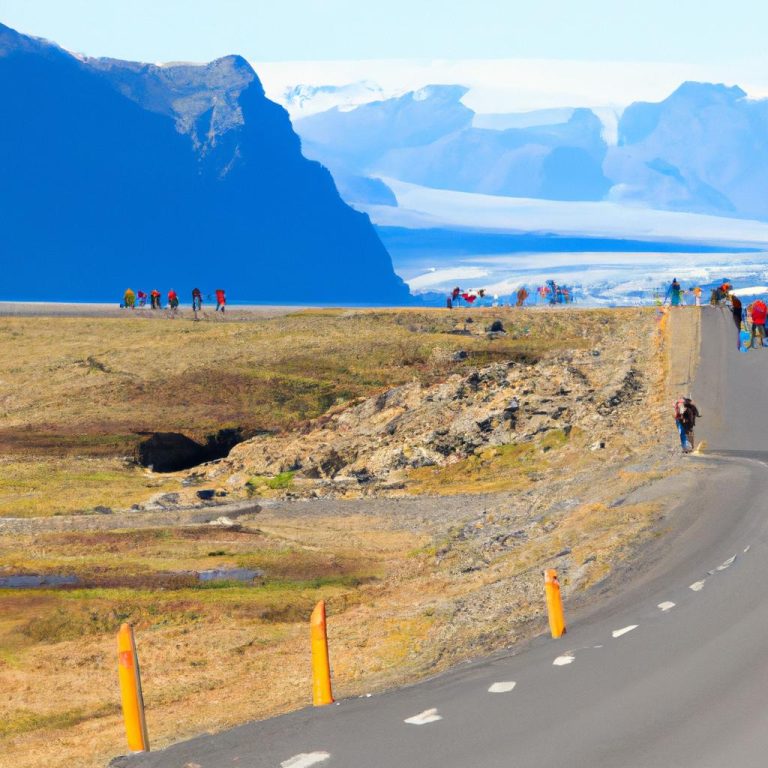Group Travel in Europe: A Comprehensive Guide
Are you ready to embark on an exciting European adventure, but don’t fancy going it alone? Look no further than group travel in Europe, the perfect way to explore this captivating continent with like-minded individuals. Whether you’re a history enthusiast eager to step foot inside ancient ruins or a food lover yearning to taste the diverse flavors of Europe, group travel offers an unforgettable experience. From traversing the picturesque streets of Paris to immersing yourself in the rich culture of Rome, this article delves into the benefits and joys of group travel in Europe. Join us as we unveil the secrets of making lifelong memories with newfound friends amidst Europe’s hidden gems.
Table of Contents
- Group Travel in Europe: Benefits and Challenges
- Choosing the Right Group Size for your European Adventure
- Selecting the Perfect Destinations for Group Travel in Europe
- Organizing Accommodations for a Smooth Group Travel Experience in Europe
- Navigating Transportation Options: Group Travel in Europe
- Group Activities and Excursions: Unlocking Europe’s Hidden Gems
- Effective Communication Strategies for Group Travel in Europe
- Managing Finances: Budgeting Tips for Group Travel in Europe
- Safety and Security: Ensuring a Safe Journey through Europe
- Tips for Maintaining Harmony and Enjoyment during Group Travel in Europe
- FAQ
- In Conclusion
Group Travel in Europe: Benefits and Challenges

Benefits of Group Travel in Europe
Exploring Europe together with a group of like-minded individuals can offer numerous advantages:
- Cost-Effective: Group discounts on accommodation, transportation, and attractions can help save money, making it a budget-friendly option.
- Cultural Exchange: Interacting with diverse group members exposes you to different perspectives and enhances your cultural understanding.
- Shared Experiences: Creating memories and shared adventures with fellow travelers fosters stronger bonds and lasting friendships.
- Less Planning: Group travel often includes pre-organized itineraries and expert guides, eliminating the stress of organizing every detail.
Challenges of Group Travel in Europe
While group travel is exciting, it’s important to consider some challenges that can arise:
- Compromise: Different preferences and interests within the group can sometimes result in compromises when deciding on destinations or activities.
- Schedule Constraints: Following a fixed itinerary may restrict flexibility and spontaneity during the trip.
- Matching Paces: Individuals have varying energy levels and travel speeds, which can lead to frustrations or delays.
- Group Dynamics: Cohesion within the group is essential; conflicts or disagreements among members may affect the overall trip experience.
Choosing the Right Group Size for your European Adventure

When planning your European adventure, one of the key decisions to make is the size of your travel group. Whether you’re traveling with family, friends, or joining a tour group, the number of people can greatly impact your experience. Here are some factors to consider when :
- Accommodation options: Smaller groups have more flexibility in finding accommodations, especially in boutique hotels or cozy bed and breakfasts. Larger groups may need to book multiple rooms or opt for larger accommodations like apartments or villas.
- Transportation logistics: Traveling with a smaller group allows for easier navigation through crowded cities, public transportation, and attractions. It also gives you more flexibility in choosing transportation modes like renting a car or using rideshare services.
- Group dynamics: Think about the dynamics within your group. If you’re traveling with close friends or family, a larger group might be more enjoyable. However, if you prefer a more intimate experience or traveling with a diverse group of people, a smaller group may be a better fit.
- Budget considerations: Group travel can often lead to cost savings. With a larger group, you may be able to negotiate better deals on accommodations, transportation, and even group activities or tours.
- Interests and preferences: Consider the interests and preferences of your group members. A larger group might have more diverse interests, making it harder to satisfy everyone’s desires. A smaller group allows for more targeted activities and experiences.
Ultimately, the right group size for your European adventure depends on your specific preferences, interests, and logistical considerations. Whether you choose a small, intimate group or a larger, lively one, make sure to plan ahead and communicate with your travel companions to ensure a memorable and enjoyable trip.
Selecting the Perfect Destinations for Group Travel in Europe

When planning a group trip to Europe, the first step is to carefully select the perfect destinations that will cater to everyone’s interests and preferences. With its rich history, diverse cultures, and stunning landscapes, Europe offers a wide range of options for group travel. Here are some factors to consider when choosing the ideal destinations for your group:
- Interests and Activities: Consider the interests and activities that your group enjoys. Are they history buffs? Do they love outdoor adventures? Are they food enthusiasts? Select destinations that offer a variety of experiences, such as exploring ancient ruins in Rome, hiking in the Swiss Alps, or indulging in culinary delights in Barcelona.
- Accessibility and Logistics: Ensure that the chosen destinations are easily accessible and well-connected by air, train, or road. Consider the proximity of airports or train stations to accommodation options to minimize travel time and logistical complications.
- Group-friendly Accommodation: Look for accommodations that can comfortably accommodate a larger group, such as spacious vacation rentals or group-friendly hotels. Check for amenities like communal areas, kitchen facilities, and meeting spaces to enhance group dynamics and convenience.
- Budget Considerations: Consider the budget constraints of your group and choose destinations that offer a range of affordable options. Research the cost of transportation, accommodation, attractions, and dining to ensure that the overall trip remains within everyone’s budget.
- Safety and Security: Prioritize safety when selecting destinations for group travel. Check travel advisories and research the safety records of potential destinations to ensure a secure and enjoyable experience for everyone.
Remember that group travel means compromising and finding common ground amongst the travelers. By carefully considering the interests, accessibility, accommodation, budget, and safety of the destinations, you can select the perfect European destinations that will make your group trip a memorable and rewarding experience.
Organizing Accommodations for a Smooth Group Travel Experience in Europe
When it comes to organizing accommodations for a group travel experience in Europe, careful planning and attention to detail can go a long way in ensuring a seamless and enjoyable trip. Here are some key tips to keep in mind:
1. Determine the Group’s Needs:
- Identify the size of your group and their preferences.
- Consider the budget range and type of accommodations desired.
- Decide on the number of rooms required and any specific facilities needed.
2. Research and Book in Advance:
- Research different hotels, hostels, or vacation rentals that suit your group’s requirements.
- Check for availability and make reservations well in advance to secure the best options.
- Look for accommodations with group discounts or special offers.
3. Coordinate and Communicate:
- Assign a group leader or travel planner responsible for communication with accommodations.
- Provide the necessary details such as arrival times, special requests, and rooming arrangements.
- Ensure clear communication between the accommodations and your group throughout the trip.
4. Consider Location:
Choosing accommodations in convenient locations can greatly enhance the group travel experience. Look for options that are centrally located, close to public transportation, and within proximity to popular attractions, shopping areas, or dining spots. This will save valuable time and effort when exploring a new city.
Navigating Transportation Options: Group Travel in Europe
Group travel in Europe can be an exciting and memorable experience. With so many countries, cities, and attractions to explore, it’s important to be familiar with the various transportation options available. One popular choice for group travel is by train. Europe’s extensive rail network offers a convenient and efficient way to navigate between cities, allowing you to see the picturesque landscapes along the way.
Another option is to hire a private coach or minibus. This gives your group flexibility and the freedom to customize your itinerary. It also provides ample space for luggage and the opportunity to bond with your travel companions. If you’re looking for a more budget-friendly option, consider taking the bus. Many European countries have well-developed bus networks that provide affordable transportation between cities and attractions.
Additionally, some cities offer bike-sharing programs, allowing you to explore at your own pace while getting some exercise. And, of course, walking is always a great way to soak in the local atmosphere and discover hidden gems. Whichever option you choose, it’s important to plan your group travel in advance, considering factors such as costs, group size, and desired destinations. By doing so, you’ll ensure a smooth and enjoyable journey as you explore Europe together.
Group Activities and Excursions: Unlocking Europe’s Hidden Gems
When it comes to discovering the hidden gems of Europe, there’s no better way to do it than with a group of like-minded adventurers. Group activities and excursions provide a fantastic opportunity to explore Europe together, creating lasting memories and forging new friendships along the way.
From the mystical beauty of the Scottish Highlands to the charming canals of Amsterdam, Europe offers a multitude of destinations that are just waiting to be unlocked. With group travel, you can experience these hidden gems in a way that is both fun and affordable. Plus, by traveling with a group, you’ll have access to expert guides who can provide fascinating insights into the history, culture, and attractions of each destination.
Effective Communication Strategies for Group Travel in Europe
When embarking on a group travel adventure in Europe, effective communication is key to ensuring a smooth and enjoyable experience for everyone involved. One essential strategy is to establish clear channels of communication among group members. This can be achieved through the use of communication apps or platforms such as WhatsApp or Slack, where important information can be shared instantly.
Another indispensable communication strategy is to designate a group leader or facilitator who can act as the main point of contact and coordinate logistics. This person should be responsible for disseminating information, organizing group activities, and addressing any concerns or issues that may arise during the trip. Additionally, creating a shared itinerary or schedule can help keep everyone informed about the daily plans and ensure that everyone is on the same page.
Effective communication also involves active listening and respecting different opinions and preferences within the group. Encourage open dialogue and create a safe space for group members to express their ideas and concerns. Finally, using visual aids such as maps, charts, or diagrams can be helpful in conveying information about transportation routes, attractions, or other important details. By implementing these effective communication strategies, your group travel experience in Europe is bound to be a memorable and harmonious one.
Managing Finances: Budgeting Tips for Group Travel in Europe
When it comes to group travel in Europe, managing finances and budgeting effectively can make all the difference in creating a memorable and stress-free experience. Here are some practical tips to help you navigate the financial aspects of exploring Europe together:
- Set a budget: Before embarking on your European adventure, sit down with your travel companions and discuss a realistic budget for the trip. Consider all expenses, including accommodations, transportation, meals, activities, and souvenirs.
- Research and plan: Research is key when it comes to budgeting for group travel in Europe. Look for affordable accommodation options such as hostels or vacation rentals, and compare prices for flights or train tickets. Planning your itinerary in advance can also help you allocate your budget wisely and take advantage of any discounts or deals.
- Share costs: One of the biggest advantages of group travel is the ability to share costs. Splitting expenses like accommodation, transportation, and groceries among your group can significantly reduce individual expenses and allow for more flexibility in your budget.
- Track your expenses: It’s crucial to keep track of your spending during your trip. Use a mobile app or spreadsheet to log all expenses, and regularly review it to ensure you stay within budget. This will also help you identify any areas where you can cut back or make adjustments.
- Save on meals: Eating out every meal can quickly drain your budget. To save money, take advantage of local markets and grocery stores to stock up on affordable snacks and ingredients for simple meals. Additionally, seek out budget-friendly eateries or indulge in picnic-style lunches in picturesque parks.
Table: Average costs in popular European destinations (per person/per day)
| Destination | Accommodation | Meals | Activities |
|---|---|---|---|
| Paris | €50 | €20 | €30 |
| Rome | €40 | €25 | €20 |
| Barcelona | €35 | €15 | €25 |
| Amsterdam | €45 | €20 | €30 |
By implementing these budgeting tips, you can make the most of your group travel adventure in Europe while keeping your finances in check. Remember, it’s all about finding a balance between experiencing everything Europe has to offer and sticking to your budget.
Safety and Security: Ensuring a Safe Journey through Europe
When planning a group trip to Europe, safety should always be a top priority. By taking a few precautions and staying informed, you can ensure a safe and secure journey for everyone in your group. Here are some essential tips to keep in mind:
- Research and plan: Before embarking on your European adventure, make sure to thoroughly research each destination. Familiarize yourself with local laws, customs, and potential safety concerns.
- Stay connected: Communication is key when traveling in a group. Ensure that everyone has emergency contact information, including the addresses and phone numbers of your accommodations and local embassies. Consider using mobile apps or walkie-talkies to stay connected at all times.
- Blend in with the locals: Dressing like a local and avoiding flashy accessories can help you blend in and reduce the risk of becoming a target for pickpockets or scammers.
- Travel insurance: It’s crucial to have travel insurance that covers medical expenses, trip cancellation, and theft. This will provide peace of mind and financial protection in case of any unexpected events.
By following these safety tips, you can ensure that your group travels through Europe without any major hiccups. Remember, safety should never be compromised, and a well-prepared journey will lead to unforgettable memories.
Tips for Maintaining Harmony and Enjoyment during Group Travel in Europe
When embarking on a group travel adventure through Europe, maintaining harmony and making the most out of the experience can be key to creating lifelong memories. Here are some essential tips to ensure a smooth and enjoyable journey:
- Establish a shared budget: Money can often be a source of tension within a group. To avoid conflicts, have an open discussion about the budget for accommodations, meals, and activities. Consider creating a common pot for shared expenses, such as groceries or transport.
- Plan together, but also allow for flexibility: Planning the itinerary as a group can be a fun and inclusive activity. However, be mindful that everyone may have different preferences and interests. Allow for some free time or individual activities, so that each person can have a chance to explore their own desires.
- Communicate openly and compromise: Honest and open communication is vital when traveling in a group. Make sure everyone feels comfortable expressing their thoughts and concerns. When conflicts arise, aim for compromise and find middle ground solutions that satisfy everyone’s needs.
- Delegate responsibilities: To avoid feeling overwhelmed or overburdened, distribute responsibilities among group members. Assign tasks like researching activities, booking accommodations, or navigating the public transportation system. This way, everyone will feel involved and valued.
- Respect personal space and time: Spending extended periods together can sometimes be intense. Respect each other’s need for personal space and downtime. If tensions arise, take a break to recharge or engage in individual activities. Remember that a little alone time can go a long way in maintaining harmony within the group.
By following these tips, you’ll be well on your way to having a harmonious and enjoyable group travel experience in Europe. Remember, it’s not just about the destination, but also the journey and the people you share it with.
FAQ
Q: What is group travel in Europe? A: Group travel in Europe refers to organized trips where a number of individuals travel together as a cohesive unit, often with the help of a tour operator or travel agency.
Q: What are the benefits of group travel in Europe? A: Group travel in Europe offers several advantages such as cost savings through group discounts, pre-planned itineraries that ensure efficient time management, access to exclusive experiences, and an opportunity to socialize and make new friends.
Q: Are group travel packages customizable? A: Many group travel packages offer some level of customization. While pre-planned itineraries are common, tour operators often allow participants to add optional activities or extend their stay at an additional cost.
Q: What types of accommodations are usually provided in group travel packages? A: Group travel packages typically offer a range of accommodations, from comfortable hotels to hostels or even camping options, depending on the nature and budget of the trip.
Q: Is group travel suitable for solo travelers? A: Absolutely! Group travel in Europe is an excellent option for solo travelers who want to explore the continent without the hassle of planning everything themselves. It provides the opportunity to join a ready-made group, ensuring safety, companionship, and expert guidance during the trip.
Q: How large are the groups in group travel packages? A: Group sizes can vary, but typically range from 10 to 50 participants, ensuring a manageable and social experience while still allowing for individualized attention from the tour leader.
Q: Are meals included in group travel packages? A: Meal inclusions can vary depending on the specific package. Some group travel packages may include breakfast or certain meals, while others may allow participants to choose and pay for their own meals throughout the trip.
Q: Do I need a visa for group travel in Europe? A: Visa requirements depend on your nationality and your destination(s) within Europe. It is essential to check the visa requirements for each country you plan to visit well in advance of your trip to ensure you have the necessary documentation.
Q: Can I join a group travel package halfway through the trip? A: Joining a group travel package halfway through the trip may be possible, but it is subject to availability and the policies of the tour operator. It is recommended to inquire with the travel agency or tour operator regarding the feasibility and potential costs associated with joining late.
Q: Are there age restrictions for group travel in Europe? A: Group travel in Europe caters to a wide range of age groups. While some packages may be specifically designed for certain demographics (such as family-friendly trips or seniors’ tours), there are typically options available for travelers of all ages.
In Conclusion
In conclusion, group travel in Europe offers a plethora of advantages and considerations. By joining a travel group, individuals can benefit from convenience, cost savings, and enhanced safety measures. Setting clear expectations and goals, along with effective communication, are vital to ensure a smooth and enjoyable journey. It is important to research and select a reputable group travel company that aligns with one’s interests and preferences. Flexibility and compromise within the group dynamics are key to fostering a harmonious and successful experience. Whether exploring vibrant cities or idyllic countryside, group travel in Europe provides an excellent opportunity to create lasting memories while fostering friendships with fellow travelers.







